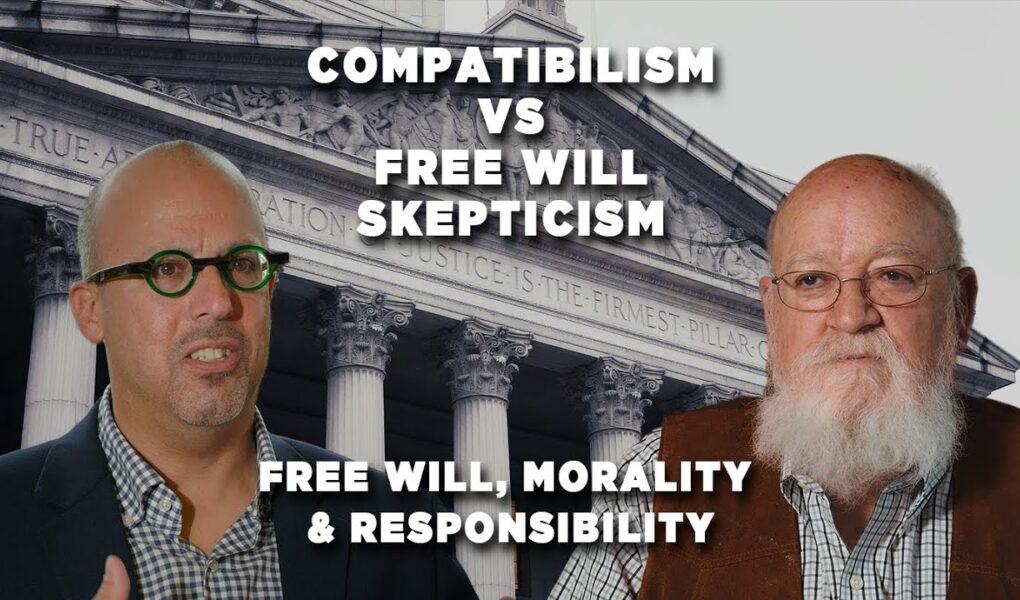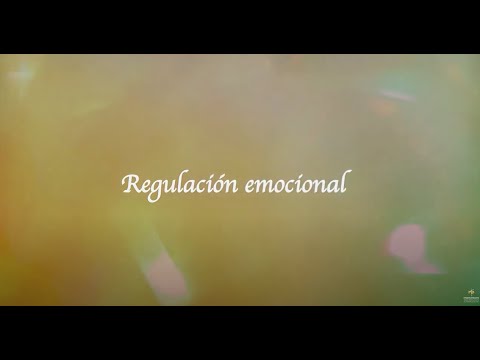Free Will? A Documentary
Here’s a sneak peek from our upcoming documentary featuring two of our speakers.
Dan Dennett, one of the world’s most prominent defenders of compatibilism, and Gregg Caruso, a free will skeptic and critic of compatibilism, argue the merits of their respective positions, including the complex issues of moral and legal responsibility.
They collaborated on a new book Just Deserts: Debating Free Will
https://amzn.to/3aI50nx
Please share and subscribe for updates on our release date. If you’d like to receive email updates on our release date click here:
http://bit.ly/2rkrxDH
About the documentary:
Free Will? A Documentary is a feature length documentary dedicated entirely to examining the most profound debate in philosophy: Do we have free will?
Visit http://freewilldocumentary.com for more info.
Follow us on social media:
http://twitter.com/freewillfilm
http://facebook.com/freewillfilm
https://vimeo.com/freewillfilm
https://www.youtube.com/freewilldocumentary
Source




The problem Carusso has with saying indeterminacy doesn't equal free will is he can't say what that is. All he's saying is what it's not & that's not saying much. I think that Dennett would probably agree that free will isn't what it intuitively seems to be & is therefore an illusion but not a delusion in the sense that it's nothing at all. It's simply a misconstrual of our ability to be free of error. This is why Dennett rightly calls it free will worth wanting.
Dan Dennet has ‘ chosen ‘ this ridiculous hill to die on. Such a shame for his legacy. Here’s a good ‘intuition’ pump: reject Emminence Based Philosophy.
Dan Dennett says mostly the right things about free will and a number of them are knowable facts but some important ones get buried.
He does say people are deluded about free will. He does make the very important point that "the circumstances" does not mean the actual circumstances with the same past (see Austin's putt). But these things aren't brought front and centre as they should be. So people go on imagining they have the free will they think they have. But they don't and it does make a difference to how we feel about moral responsibility, fairness and political systems.
The common person on the street is correct: we do have free will. The denial of this by scientists is simply because their starting point assumption–their first principle–is that materialism is true. Compatibilism is a cop-out as John Searle has said. Compatibilism is deterministic and relies on the idea of subconscious "programs" that are somehow magically created to do these marvelous things that we experience our minds doing every day. That we have free will is easily demonstrated by the fact that we can reason. Reason requires the ability to direct our thoughts along a coherent line of thought. Directing our thoughts is obviously an act of free will; if it isn't I do not know what is. And reason always involves novel, creative insights by definition. Materialism claims that consciousness and thought are the effects of the particles in the standard model of physics and their aggregations into molecules acted upon by the electromagnetic force–one of the four fundamental forces in nature. But if that is true then to explain reason one would either have to invoke some programmatic, deterministic aspect of Newtonian physics or the indeterminacies of quantum mechanics. Neither option has any hope of being successful (with an exception noted below). But you cannot explain reason by appealing to programs because programs would have had to have been pre-created and because they are deterministic. But we know reason always involves novel unfolding of thoughts; and programs cannot create novelty. Moreover, one would have to ask where these putative programs came from in the first place. Molecules cannot be anticipatory. Appealing to the indeterminacies of quantum mechanics does not work because the specificity required to produce a line of reasoned thought would violate the most fundamental principle in all reality–entropy, i.e. the probabilities of large numbers of small particles lining up on ways that produce information. The only reasonable alternative is substance dualism where an immaterial mind interacts with the material brain and that must happen through the window of quantum uncertainty.
Any new video's coming up?
Yay, polish edition of "Consciousness explained" on Dennett's shelf! Got one too! 😉
Gregg is on the ball.
"That might include minitoring….". Because, after all we can't be trusted to be responsible for ourselves can we? This is terrifying and insane. The very idea of a mature adult is to be held responsible for our actions. So, hard work and good morality is not to be rewarded? Insane. Our very idea of morality goes out the window. No moral development, nothing to strive for and if we commit a dreadful crime then we can't really be blamed because we were going to do it anyway. Perfect excuse for every crime imaginable. This is the kind of nonsense pushed This is nihilism incarnate. Ravings of the insane!
My Professor Blank, attempted to introduce these ideas and did a terrible job. Thank you for this video!
First of all, one doesn't define free will. You look it up. It's in all of the dictionaries. We understand the notion (what it is) of free will quite well. We all have have strong sense of it as us being the authors of our own actions. This is not Dennett's "definition" of free will. He would communicate better if he called his concept of free will something other than "free will," the "characteristics of human autonomy." for instance.
Convolving free will and ethics causes confusion. They are entirely separate things. Free will focuses on individual autonomy. Ethics addresses how we deal with others. Ethics roots back to the evolution within social species. Lions live in more complex settings than tigers. They have more ethics (more things to consider) in how they behave among others of their species. Humans have evolved a far more complex social milieu demanding far more sophisticated ethics.
In the end, our behavior is simply a matter of cause and effect. Caruso is correct. We are not responsible for our actions. Even if we receive all the ethical instruction to "control ourselves," as Dennett would have it, at the moment of action it is a balance of factors that drive our actions. The killer may understand that murdering was wrong, but the "training" he received couldn't overcome the internal forces telling him to do it. The result was inevitable. We use the terms punishment, vengeance, deterrence, and justice. Punishment and vengeance would seem unwarranted under this scenario. Hardly, matters. We do not see ourselves as a vengeful or punishment for punishment's sake society. Justice is a term that I never understood. It seems to relate to punishment and vengeance. My reflects on the word suggests to me that its a euphemism for vengeance. That leaves us with deterrence as the last pillar standing in our enforcement of ethical behavior. Or, what Dennett sought to achieve with the concept of responsibility. Unethical behavior must be ameliorated. It's an evolution imperative for species that live in societies. And deterrence does the trick. A very deflationary rationale, resting solely on pragmatics, when compared to Dennett's high road of morality. But, it makes better sense of these matters.
In this CCShort https://youtu.be/RaU4cNv2-T8 The Consistent Calvinist confirms that “Compatiblilism, although true, is no less deterministic than Hard Determinism”… then he calls all Calvinists to a higher, more Consistent, standard!
God is the only reference point that matters in any conversation about freewill…
$10 says Caruso calls the cops if someone attacks him or steals from him.
How about some clips from the documentary by Dr Edwin Locke?
This video makes it plain that compatibalism is evil. God makes it absolutely plain that people are responsible while the compatibalist wants to explain away, regardless of how they do it, that people are not accountable for what they do….the devil made me do it. They are teaching that God is not going to hold people accountable for what they do.
What does Caruso mean when he says at the end that the determinist doesn't have to give up moral judgements, but just the idea that actions are praiseworthy or blameworthy? Isn't that the heart of what morality is all about?
Whether free will actually exists, we naturally act as if it does, and we are held responsible for our actions, and rightly so.